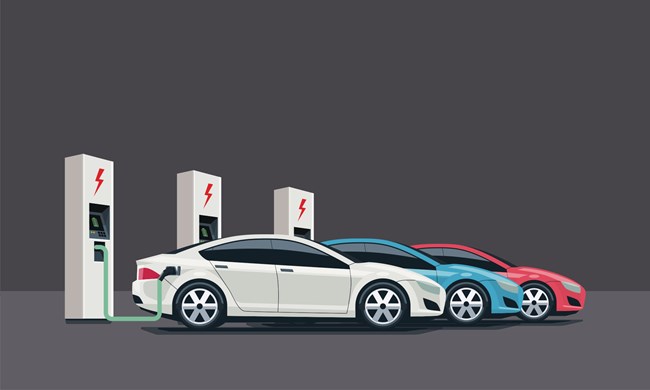We use cookies to ensure that we give you the best experience on our website. If you continue without changing your settings, we will assume that you are happy to receive all cookies on the Business Car website. However, if you would like to, you can change your cookies at any time

The start point for the best source of fleet information |
Use overall EV benefits to justify workplace charging cost, fleets advised
Date: 16 April 2021 | Author: Sean Keywood

The cost of installing workplace EV chargers becomes easier to justify when it is considered together with the overall business benefits of electrification.
That was one of the recommendations to come out of an EV Forum on the subject, hosted online by 360 Media Group.
Among the speakers was Mitie director of sustainability, social value and fleet Simon King, who said the key was striking a balance between costs and savings.
When asked about making a business case for workplace charging, he said: "The biggest concern I have here is there appears to be a perception that the business case for EVs is difficult. We shouldn't have a business case for workplace charging, we need a business case for at the very lowest level electrification of your fleet, and ideally decarbonisation of your business.
"There are always going to be things that cost you money, and things that save money. At Mitie we save quite significantly on our [electric] company cars, and things like e-gritters cost us a fair bit of money, but we have got a lot more company cars than e-gritters, so when you look at that balance, if you invest your savings you can pay for all of your infrastructure, all your expensive vehicles, and the CFO and CEO are still very happy.
"You need to look at it as a whole project, and go what does it mean to decarbonise your entire fleet, and what is the whole life cost of all those aspects, because if you do that, workplace charging starts to get lost in the rounding in a lot of businesses, whereas if you try to justify it in and of itself it becomes a challenge. Take it up a level and it becomes so much easier."
Among the other speakers was National Grid fleet manager Lorna McAteer, who said that collaboration withing a business was also crucial.
She said: "It's absolutely key to get the buy in right away because this isn't the fleet manager's problem . it's a property thing, so the larger the corporate, the more you need your workplace facilities management teams to help you do that side of it."
AFP deputy chair Stuart Lightbody added: "We have always known as fleet managers that we wear many hats, and I think actually we're going to need a bigger wardrobe, because the range of hats is just going to continually grow.
"I always used to love the fact that being a fleet manager you are involved with HR, finance, operations, and having to cross all those areas made the job more intriguing. [With EV charging] it's now facilities, internal engineers, electricians - it's lots of different things."
McAteer also said that when installing charging across a large operation, each individual site needed to be considered on its own merits.
She said: "Every single site is different, so although you can package sites up into bundles, all connection problems are unique, and they can be very different at every site.
"You almost need to come up with a bit of a checklist of what you do, and the right charge point provider can help you do all that work."
Another issue raised was that of engagement with building landlords, with speakers saying they had previously found some being less enthusiastic about charger installation than others.
McAteer said fleet managers should carefully consider their approach.
She said: "Is it a friendly landlord? What's your tenure left on that site? How do you go about managing that, and how do you engage with all those landlords to get that deal to be able to put those charge points in?
"You also use whatever legal means you can if you get a difficult landlord, you tackle the local councils and you help get that permission through. But they own the building, it's down to them, you can't always manage that."
King said that ideally, landlords should be contacted 12 months in advance of a planned installation.
He said: "You'll get a proportion [of landlords] who say yes because they get it, but you need to give them some time. That then allows you to focus on the ones who aren't saying yes."











